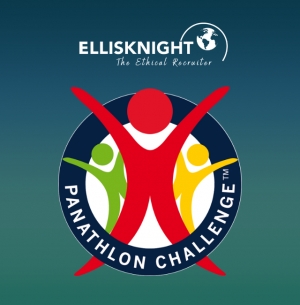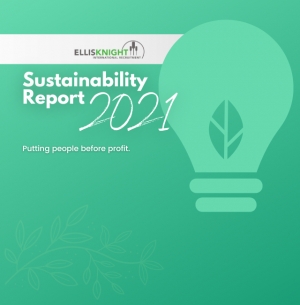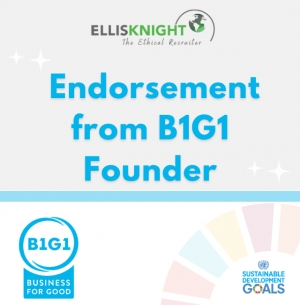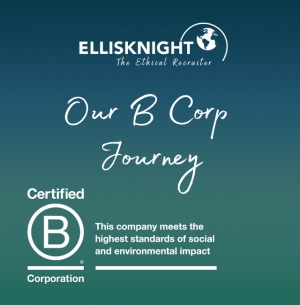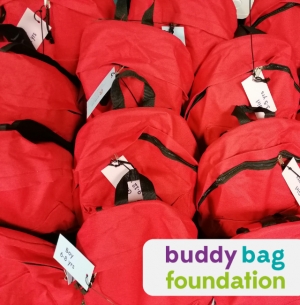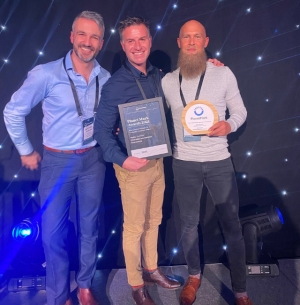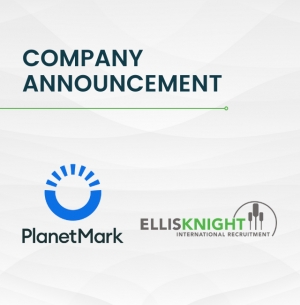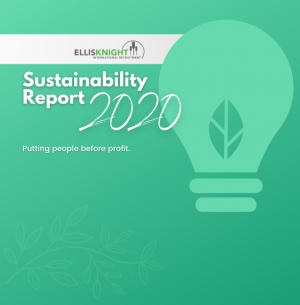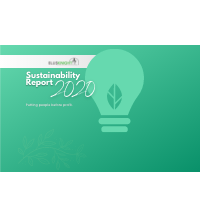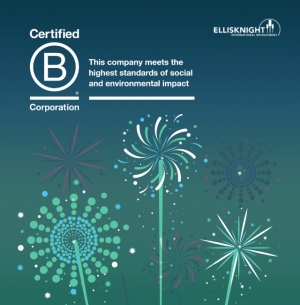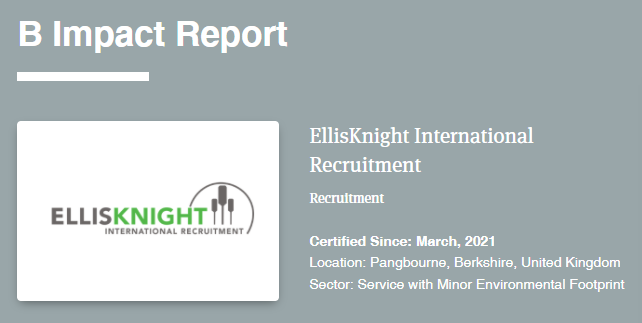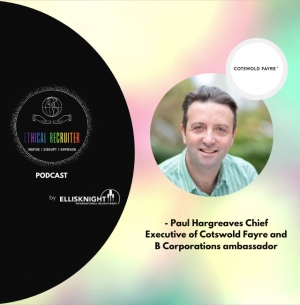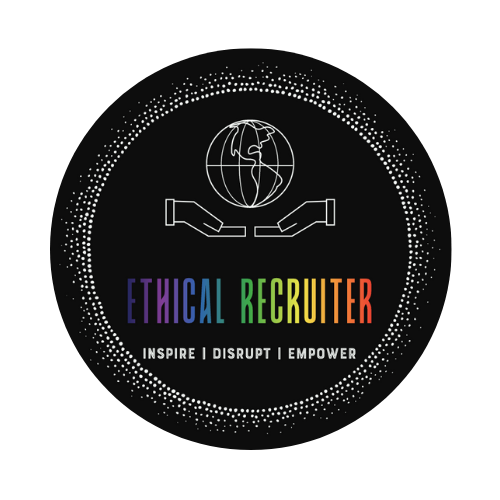EllisKnight Team
Panathlon Foundation has Record Breaking Year
Panathlon Foundation has Record Breaking Year
Special needs charity and EllisKnight International Charity Partner, the Panathlon Foundation, has reported a record-breaking year of participation.
Panathlon is a national charity which gives young people with disabilities and special educational needs every year the opportunity to take part in competitive sport. In 2021/22, a record 52,476 young people participated in Panathlon sporting competitions as face-to-face events made a roaring return to school calendars to blend with in-school and virtual programmes.
Last academic year, 33,197 pupils with disabilities and special needs took part in face-to-face competitions across England and Wales, supported by 5,013 specially trained Young Leaders.
Ellis Knight have championed the cause of Panathlon for over 18 months.
Coming Through the Pandemic
In a tough time for Penathlon during the pandemic, competitions had been wiped out the previous academic year by Covid-19. Although the pandemic continued to cause complications this year, especially when restrictions returned in January, they still managed to stage the highest number of competitions in the charity's 25-year history.
A Virtual Programme continued during restrictions. The programme was conceived at the start of the pandemic to allow schools to host internal competitions safely on-site for pupils with additional needs. Schools loved it so much they continued to engage after Covid restrictions were relaxed, and its visibility and impact grew, with 13,305 pupils participating in 2021/22.
In total, 2,078 schools across England and Wales took part in Panathlon activity across 758 events and activities in and out of schools.
Tony Waymouth, Chief Operating Officer at Penathlon, said: "To have broken our all-time participation records during the continuing uncertainty of the pandemic period is hugely satisfying for everyone at the charity who has worked so hard throughout it.
"For many school staff and pupils, Panathlon competitions have been their first opportunity to leave the school gates for nearly two years. The benefits go way beyond mere sporting provision, boosting mental and physical health, self-confidence, inclusion and social skills and having a ripple effect across academic attainment. We followed the mantra of meeting all the children's needs, whether they were at their own school or at one of our external events. We are proud of our agility in adapting to yet more challenging circumstances throughout this academic year."
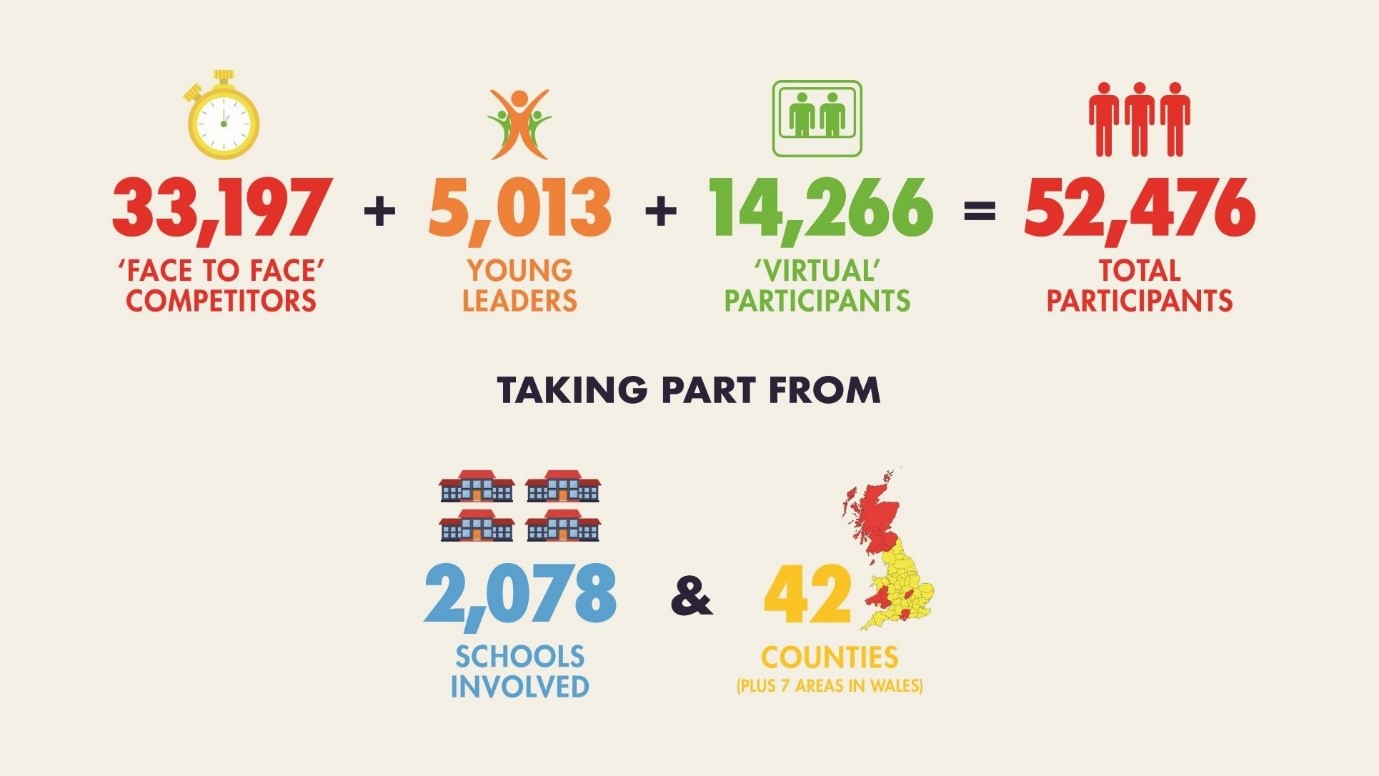
What Panathlon did to Recover
Panathlon's blended approach gives pupils the opportunity to practise activities first in school before then transferring those newly honed skills into a competitive environment against other schools at face-to-face competitions (particularly evident in Panathlon's primary-age and swimming programmes).
The ever-changing Covid-19 regulations and concern over pupils' health and wellbeing meant 2020/21 delivery had to be adapted to create an environment where schools could feel comfortable mixing with others. By incorporating social distancing, reducing numbers, creating extra space, delivering outside or making innovative format changes, gave schools confidence to participate again.
One pupil in Peterborough encapsulated the mood of many competitors across this year's events. He said: "Lockdown felt like being trapped in a cage, but today feels like the cage door has opened!"
Sporting Programmes
Panathlon also launched a Discovery swimming gala format to help address the decline in swimming participation during Covid. These galas gave pupils an accessible and positive experience and rebuilt water confidence, which had become a barrier to participation along with draining of school pools, time, expense and lack of lesson time in the dwindling number of local authority facilities.
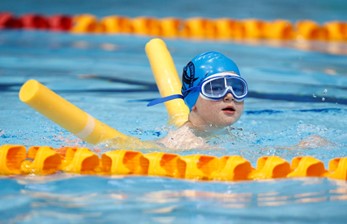
School staff and pupils were ecstatic to return to traditional competitions including primary, secondary, Xtend, swimming, football (including girls' football), boccia, ten-pin bowling and new-age kurling.
They also diversified their offering by adding bespoke activity for areas with existing community links, including tennis, basketball, cricket, power hockey, judo and ice skating.
Panathlon activity grew exponentially in many areas during the year resulting in 29 regional (multi-county) finals with schools showing their dedication by travelling hundreds of miles to participate.
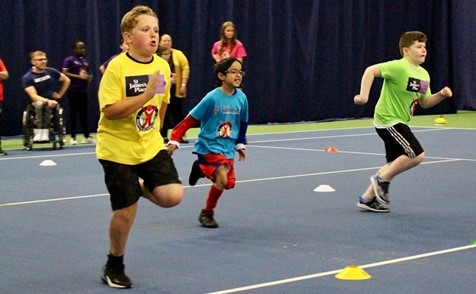
EllisKnight Releases 2021 Sustainability Report
The time has come again to give ourselves a pat on our backs for everything we've done in the last year and get our thinking caps on to how we can keep doing better in the year to come as EllisKnight International releases its sustainability report for 2021.
A massive congratulations to the entire team for surpassing themselves once again as they took on the massive challenge we set ourselves after amending our articles of association in 2020.
As we look back on 2021, we know that last year was another strange year for many people and businesses as we continue to feel the effects of the pandemic.
At EK, we have been excited to continue our journey and were thrilled to become B-Corp Certified in March 2021. We have always positioned ourselves as positive disruptors within our sector, but we are only as good as the exceptionally talented team that we have.
Since we undertook our rejuvenated sustainability journey in 2020, being a purpose led business has been at the underlying theme of everything we've undertaken this last year.
We have become the first recruitment agency to achieve both a Gold CSR Accreditation and receive The Planet Mark. We have also achieved carbon neutral status and re-modelled our business to hold ourselves accountable against the United Nations Sustainable Development Goals. As a team we will continue to learn and grow to ensure that a partnership with EllisKnight is always a partnership for good.
Paul Baker, Director at EllisKnight said "For me, working with "Purpose" is about working with people who truly understand what is important on a human level when you strip all the material distractions and ego away. People can focus on something meaningful. They are happier in their work and personal lives and are motivated to do and be better. They go that extra mile to help others and have a true sense of belonging where they genuinely care about and for other people. They feel trusted and are motivated to do their best each day. Amazing things can happen when you get this right!"
In 2021, some of our greatest impacts we achieved as a business was through our wonderful partnerships. Our giving partnerships through B1G1 and Toilet Twinning allowed us to make impacts in the regions of this planet most in need of help. Our partnership and certification with Planet Mark allowed us to reduce our carbon footprint by a massive 62.4% this year.
What we achieved:
- Continued championing B1G1 by donating a percentage of every invoice received on our client's behalf. We made a total of 349,313 impacts throughout 2021.
- We were honoured to have won the Geographic Giving Award from B1G1 in the Special Recognition Category.
- During 2021 we twinned a further 12 toilets on behalf of our clients and suppliers through Toilet Twinning.
- We are the first recruitment agency globally to be Planet Mark certified. In 2021, we achieved our Second Year Certification and reduced our carbon footprint by 62.4%.
- We won the Planet Mark Best Newcomer Award.
- During 2021, half of our team became Mental Health First Aiders through our partnership with Mental Health Charter.
- We became B-Corp certified in March 2021.
- Our team purchased items to pack 30 Buddy Bags and delivered them to a local women's refuge centre.
We are not going to rest there! There are some many more goals we want to achieve in order to be a truly purpose led, sustainable business that looks out for people, planet and prosperity for all. Looking forward, we want to highlight our hopes and dreams for 2022.
What we still need to do:
- Aim to ensure the whole EK team become Mental Health First Aiders.
- Meet a total target of 1 million B1G1 Impacts.
- Reach a total of 15,000 trees in the EK Forest through our partnership with Ecologi.
- Reduce our Carbon Footprint by a further 5% to allow Planet Mark recertification for the third year.
- Offset our carbon footprint through Gold Standard Offsetting Projects and maintain our carbon neutral status as a company.
- In addition to Toilet Twinning, we hope to begin tap twinning for our clients and suppliers – We will twin every tap within EK HQ in 2022.
- Continuing to build upon or exciting Community Partnerships through supporting young people, local charities, and the environment.
- Encourage our EK Family to sign up to Giki to analyse and take ownership for their personal carbon footprint.
Early results
We are proud to say that thanks to the hard work of our lovely team, we have given ourselves a jump and achieved some of this year's To Do list already.
So far this year, we have reduced our Carbon Footprint by 8% already! More than our 5% target and are on our way for our Planet Mark recertification.
We have also achieved our carbon offsetting target and maintained our carbon neutral status for 2022.
EK Receives Endorsement from B1G1 Founder
EK Receives Endorsement from B1G1 Founder
Paul Dunn Backs The Ethical Recruiter
EllisKnight International is thrilled to receive the endorsement of B1G1's Paul Dunn calling us "the kind of ethical recruiter you want to have on your side".
The Founder of the philanthropic social enterprise that focusses on Business for Good made a lovely video endorsing our business and encourages others to "take a deeper look" at our commitments to the planet.
Filming live from Singapore, he said, "There are recruiters and then there are Recruiters. The team at EllisKnight are in that latter category, the type of ethical recruiter you want to have on your side. These guys really do put people and planet first.
"They really do walk the talk and they are committed to doing great things in this world as well through their partnership with us and total commitment to the Sustainable Development Goals (SDGs)...The team at EllisKnight are committed to building a better future for every one of us, and that means you too."
25 August 2022 will see the two-year anniversary of our partnership with B1G1. In that time, we have made around 350,000 impacts throughout 2021 and over 535,000 impacts in total up to the start of 2022. The projects we have supported thanks to B1G1 range from providing books to schools in India and mosquito nets in Zambia – to giving access to life-saving water in Ethiopia and farming tools and training in Malawi.
In July 2021 we were honoured to have won the Geographic Giving Award from B1G1 in the Special Recognition Category and we hope to have made over 1 million impacts by the end of 2022.
All the projects we support through B1G1 directly impact the UN SDGs. The SDGs are baked into our business and part of our operations. Our partnership with B1G1 allows us reach on a global scale, and while we make direct impacts to Goal 1: No Poverty and Goal 8: Providing Decent Work and Pay as a Living Wage Employer and as a recruiter for jobs with good salaries at home, B1G1 allows us to make impacts on a global scale.
Our five most impacted SDGs to date thanks to our partnership with B1G1 are:
Goal 10: Reduced Inequalities = 86,498
Goal 4: Quality Education = 86,001
Goal 6: Clean Water and Sanitation = 74,699
Goal 3: Good Health and Wellbeing = 70,539
Goal 11: Sustainable Cities and Communities = 63,974
B1G1 is one of a number of valuable sustainability enterprises we partner with to increase our positive impacts to people and planet and to reduce our carbon footprint.
In 2021, we impacted out total carbon footprint by -62.4% compared to our 2020 figures calculated by partners, Planet Mark. Our reduction was achieved by cutting business travel and offsetting by planting 5,563 trees in our Ecologi forest in 2021. We are also proud to have maintained our carbon neutral status for 2021.
Our B Corp Journey
Our B Corp Journey
To celebrate B Corp Month, we decided to take you through our own B Corp journey. It has been one year since our accreditation was made official and we could not be prouder to have achieved such a feat.
The journey has empowered us to think about every aspect of our business - down to the smallest details - to help us be the purpose-lead, values-driven recruitment agency that we are today. One that not just positively impacts our industry, but is positively impacting the planet too.
B Corps are modelling the kind of business the world needs - business that meets rigorous standards for social and environmental impact, is transparent, and is accountable to all its stakeholders. B Corps of all sizes across multiple industries are joining together to achieve our collective vision of an inclusive, equitable, and regenerative global economic system that benefits all people and the planet.
We first heard the term B Corp back in 2018 whilst supporting our client, Ella's Kitchen - Mark Cuddigan, their CEO, is an inspirational B Corp Ambassador and candidates have always been encouraged to proactively research B Corp as part of their recruitment process. Mark would also give talks to prospective candidates about B Corps and their mission and values – he has had such a positive impact on our journey.
When the pandemic hit, we wanted to take stock of our business and knew we had to stand for something other than our bottom line. We felt that undertaking the B Corp assessment was the right thing to do, even if it seemed like a daunting journey at the start with potentially up to 200 separate pieces of evidence to submit for scoring.
Luckily, we had a starting point in that we were undergoing our CSR Accreditation at the time which helped us produce detailed records about the business and helped us categorise all our community and philanthropy projects before we got going.
Such an undertaking showed us we were light on our sustainability potential, an essential requirement where B Corp certification was concerned. We partnered with Colin Curtis at Support The Goals to align the business with the UN SDGs, we became a partner of B1G1 and supported causes that directly impacted people and planet. We worked with Planet Mark to analyse our carbon footprint, and enacted initiatives to reduce it, which resulted in a 62.4% drop in the 2020-2021 year.
We also partnered with B Corp ambassadors such as Paul Hargreaves, Founder of Cotswold Fayre, to gain more insights on the process.
We started our B-Impact assessment in the summer of 2020. With our CSRA certification and our Plant Mark certification both confirmed around that time, we felt confident moving into the assessment phase knowing we had a realistic chance of scoring the necessary pass mark of 80.
It took around two months of work to complete the initial questions with a further 2-3 months of further refinement. We aimed for a score of 100, but we required more evidence of knowledge in the public domain and the projects we were conducting to achieve this.
On 4 March 2021, our B Corp status became official!
With a passing score of 92, it was a proud achievement for the business. Right now, the median score for ordinary businesses who complete the assessment is 50.9.
We became the first High-Street recruiter in the UK to become a B Corp, and only the 8th recruitment agency in the world to achieve B Corp status at the time.
Our full score breakdown can be seen on the graph below.
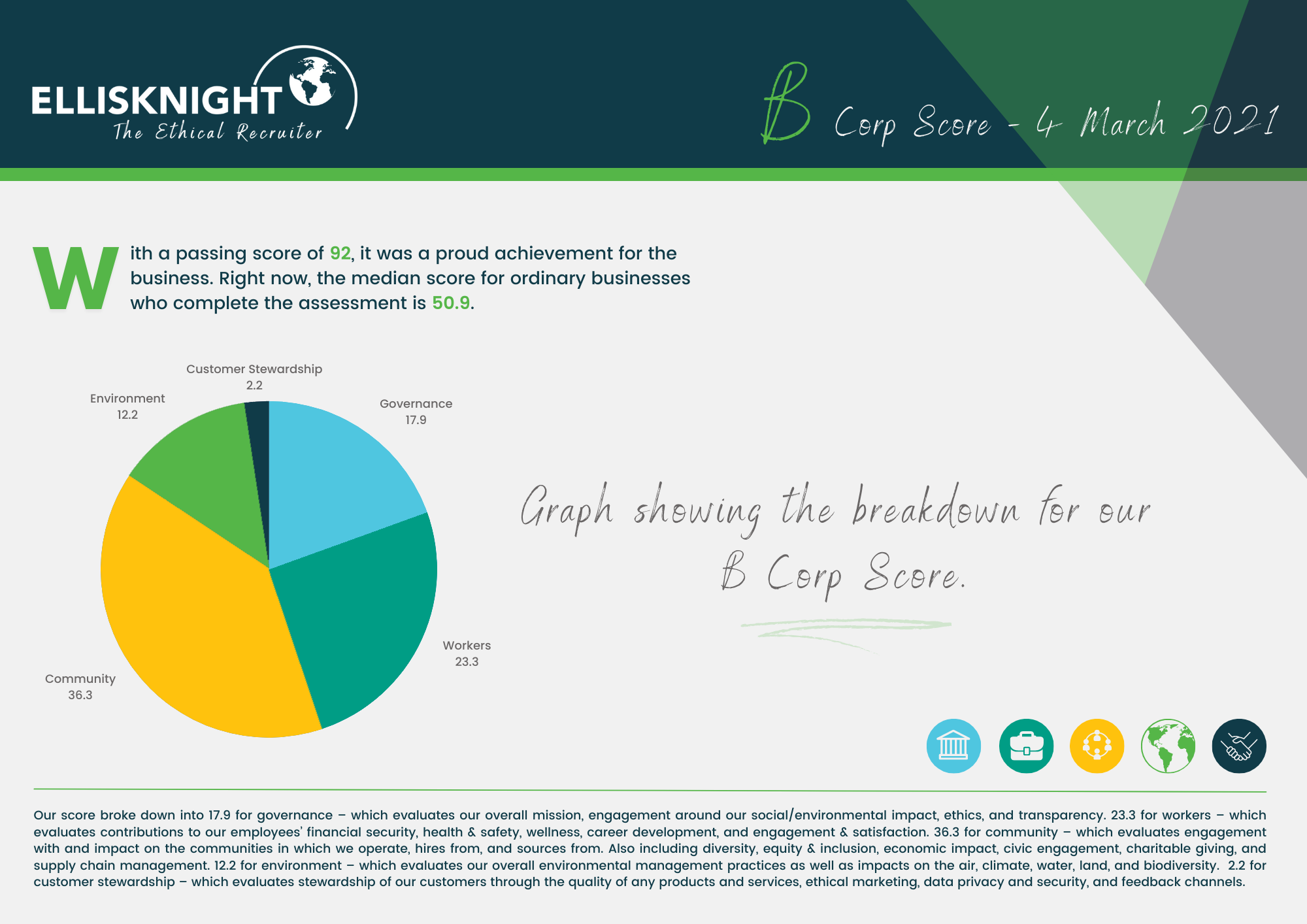
Criteria that is not always relevant to our industry is still scored and we may not be able to improve in some areas, but it does give us further incentive to continually improve our score where we can.
B-Corp's re-verification model means we cannot rest on what we have already accomplished. We must keep on building our community partnerships, inspiring our clients and moving forward with new projects that will benefit our core mission.
We will begin our evidence gathering process at the end of this year for re-verification in 2024.
We are passionate about committing more to our community efforts and supporting amazing organisations close to our heart, including Naomi House & Jack's Place, Panathlon and Buddy Bag Box Challenge.

We are also entering into more great partnerships to improve our environmental impact through working with organisations like Toilet Twinning, and our community inclusion impact with partnering with organisations like Includability – a B Corp Pending organisation – that offer a breadth of best practice knowledge through their extensive community.
This purpose-led journey that has taught us so much - chiefly how we can better serve our planet and our community, the clients we adore, the candidates we cherish, and the EK team mates that we love.
Thank you to Mark Cuddigan, Paul Hargreaves and Masami Sato for inspiring us through your amazing work with Ella's Kitchen, Cotswold Fayre, a certified B Corporation, a certified B Corporation and B1G1 to begin this journey. Thank you to everyone who has inspired us ever since.
EllisKnight Buddy Bag Box Challenge
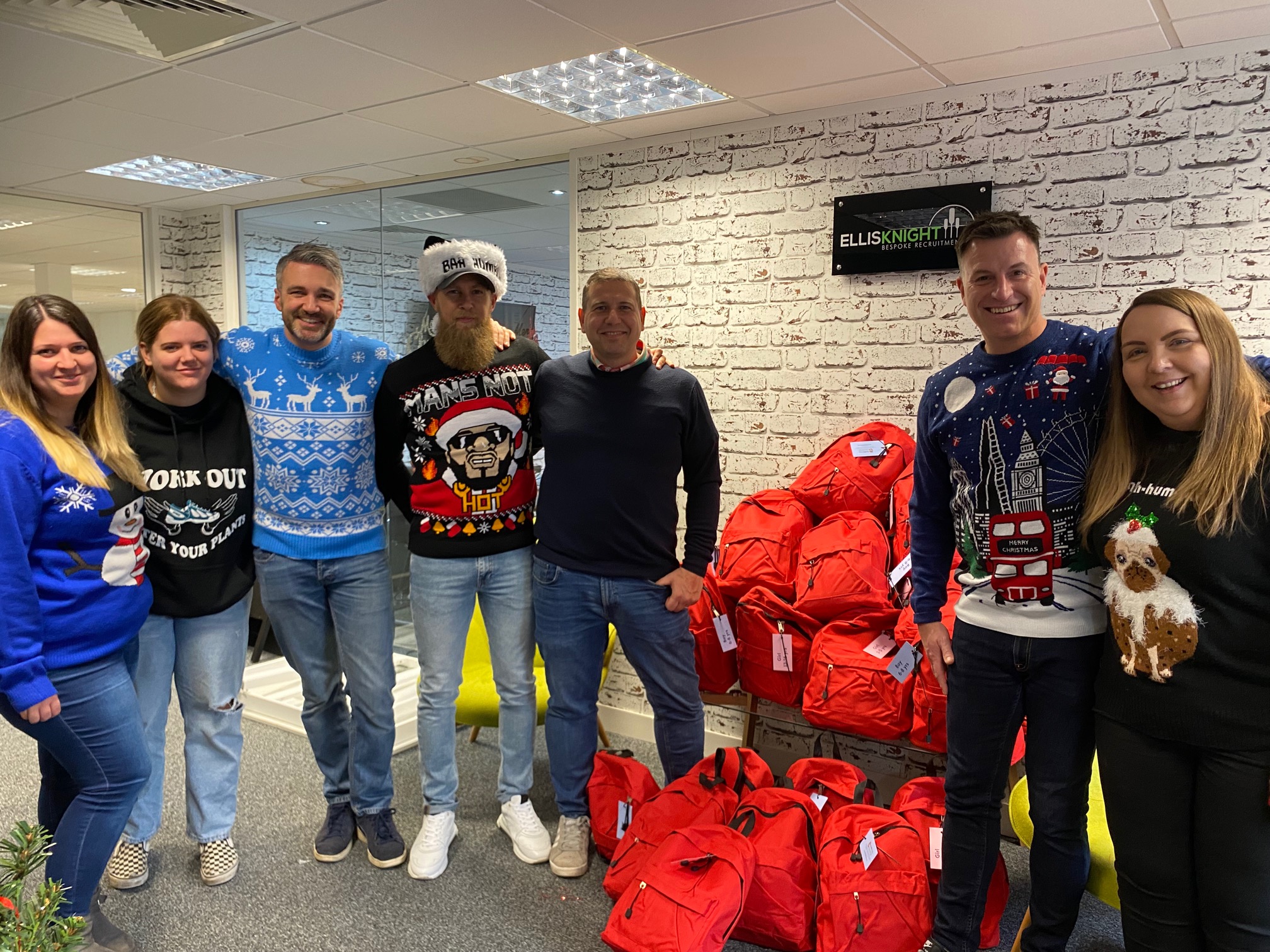
Buddy Bag Box Challenge Packed Before Xmas
Purpose driven recruitment agency, EllisKnight International completed a Challenge Box on 17 December, a team building challenge to help children escaping violence set by its charity partner, Buddy Bag Foundation (BBF).
BBF was created by Founder, Karen Williams OBE in response to the rising number of children who enter emergency care after fleeing violent situations at home.
They seek to restore a sense of safety and security into a child's life during a traumatic time and begin the first steps to recovery. By providing these children with a few essential items, such as clothing, toys, stationary, books and toiletries help make the transition into emergency care a little easier.
There were two main aims for the Berkshire-based team to complete: First, to identify 30 people to receive a shopping bag, then tasking those people to fill said bag with an item needed to fill 30 Buddy Bags. Part of the exercise was to shop for items suitable for children of differing gender and ages, to provide a greater sense of personal touch to the project.
Since we are a small team, roping in a few volunteers was not going to cover all of the tasks and everyone doing the shopping had multiple assignments.
Secondly, once the team had completed their individual tasks, they returned to the office to unpack their shopping and help pack the 30 rucksacks that were to be delivered. It took four hours for our team to pack all of the rucksacks. Much of that time was spent double checking everything to make sure no items were missed before the bags were sealed.
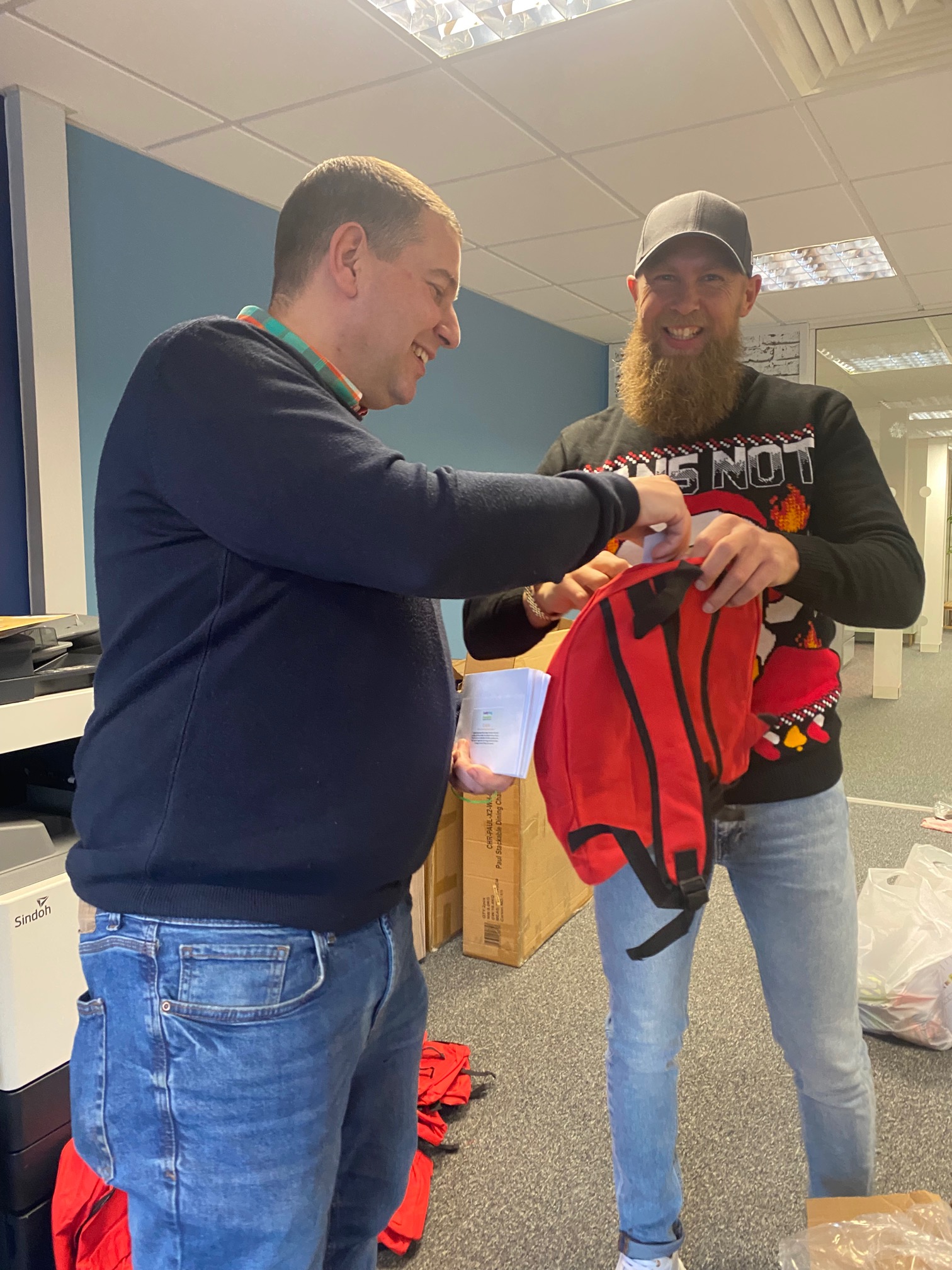
Once packed and labelled, the bags are ready to be delivered to a refuge centre within 20 miles of HQ in Pangbourne.
"The team at EllisKnight are extremely honoured to have completed The Buddy Bag Challenge. The work you guys do is incredible and makes a huge difference to children entering emergency care. To be able to be part of that has left us all with full hearts and the desire to make a difference in 2022! Thank you for the opportunity we look forward to doing it again in the Summer," said Sam Whitby, Social Media Manager at EllisKnight.
The bags will be delivered to a local refuge in Berkshire within a week. Complications with the pandemic has the effort but contact with the refuge is ongoing and they are excited to take the bags from us.
Around 48,000 children require emergency accommodation in the UK each year. These children are often fleeing a violent situation or sexual abuse, and have to leave home quickly, without the chance to collect basic items. Often children will arrive at emergency accommodation centres with only the clothes they are wearing.
Since its formation in 2015, Buddy Bag have distributed 31,121 bags up until the end of 2020 and have supplied over 396 Women's Refuges around the UK.
On a personal level, Sam added, "As soon as I read about what they [BBF] do and how they help children entering emergency accommodation, I knew I would like to support them.
"Having young children myself, I couldn't even begin to imagine being in a situation where you have to flee your home with children and majority of the time only the clothes on your back and how scary this must be for a mother and the children.
"To be able to support a charity that brings a small glimmer of hope and comfort to a child who has been through a scary time just felt right."
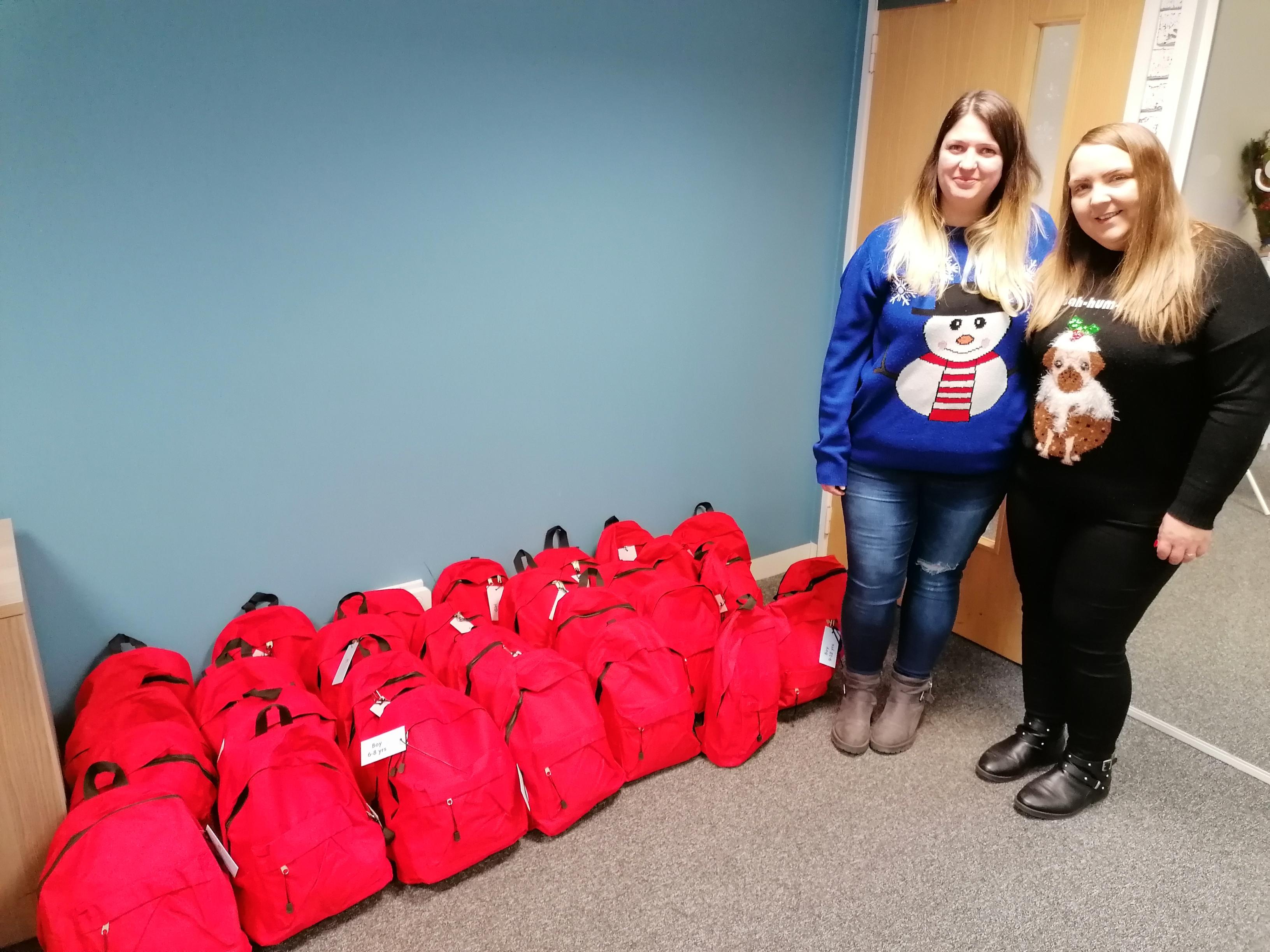
Once packed and labelled, the bags are ready to be delivered to a refuge centre within 20 miles of HQ in Pangbourne.
“The team at EllisKnight are extremely honoured to have completed The Buddy Bag Challenge. The work you guys do is incredible and makes a huge difference to children entering emergency care. To be able to be part of that has left us all with full hearts and the desire to make a difference in 2022! Thank you for the opportunity we look forward to doing it again in the Summer,” said Sam Whitby, Social Media Manager at EllisKnight.
The bags will be delivered to a local refuge in Berkshire within a week. Complications with the pandemic has the effort but contact with the refuge is ongoing and they are excited to take the bags from us.
Around 48,000 children require emergency accommodation in the UK each year. These children are often fleeing a violent situation or sexual abuse, and have to leave home quickly, without the chance to collect basic items. Often children will arrive at emergency accommodation centres with only the clothes they are wearing.
Since its formation in 2015, Buddy Bag have distributed 31,121 bags up until the end of 2020 and have supplied over 396 Women’s Refuges around the UK.
On a personal level, Sam added, “As soon as I read about what they [BBF] do and how they help children entering emergency accommodation, I knew I would like to support them.
“Having young children myself, I couldn’t even begin to imagine being in a situation where you have to flee your home with children and majority of the time only the clothes on your back and how scary this must be for a mother and the children.
“To be able to support a charity that brings a small glimmer of hope and comfort to a child who has been through a scary time just felt right.”
Ellis Knight Wins Best Newcomer at Planet Mark Awards
EllisKnight International is very proud to have won the Best Newcomer category at the Planet Mark awards in November.
Held in London as part of the finale of Planet Mark’s Zero Carbon Tour, EllisKnight took the Best Newcomer award shortly after completing recertification to The Planet Mark after reducing our carbon footprint in the previous year by 62.4%
Patrick Graham, Co-Founder of EllisKnight International, said, “We are delighted to have won Best Newcomer at the recent Planet Mark awards in London – it was an amazing event with some incredible people. Next stop Net Zero!”
Emma Ruttle, Sustainability Manager at EllisKnight International, said, “I am so pleased that EllisKnight has won this award! It means so much to all of us that our hard work over the last 18 months has been recognised and it is a real boost to know that we have made great progress & doing well and we are excited to continue our journey with Planet Mark.”
EllisKnight has pledged to become a Net Zero business.
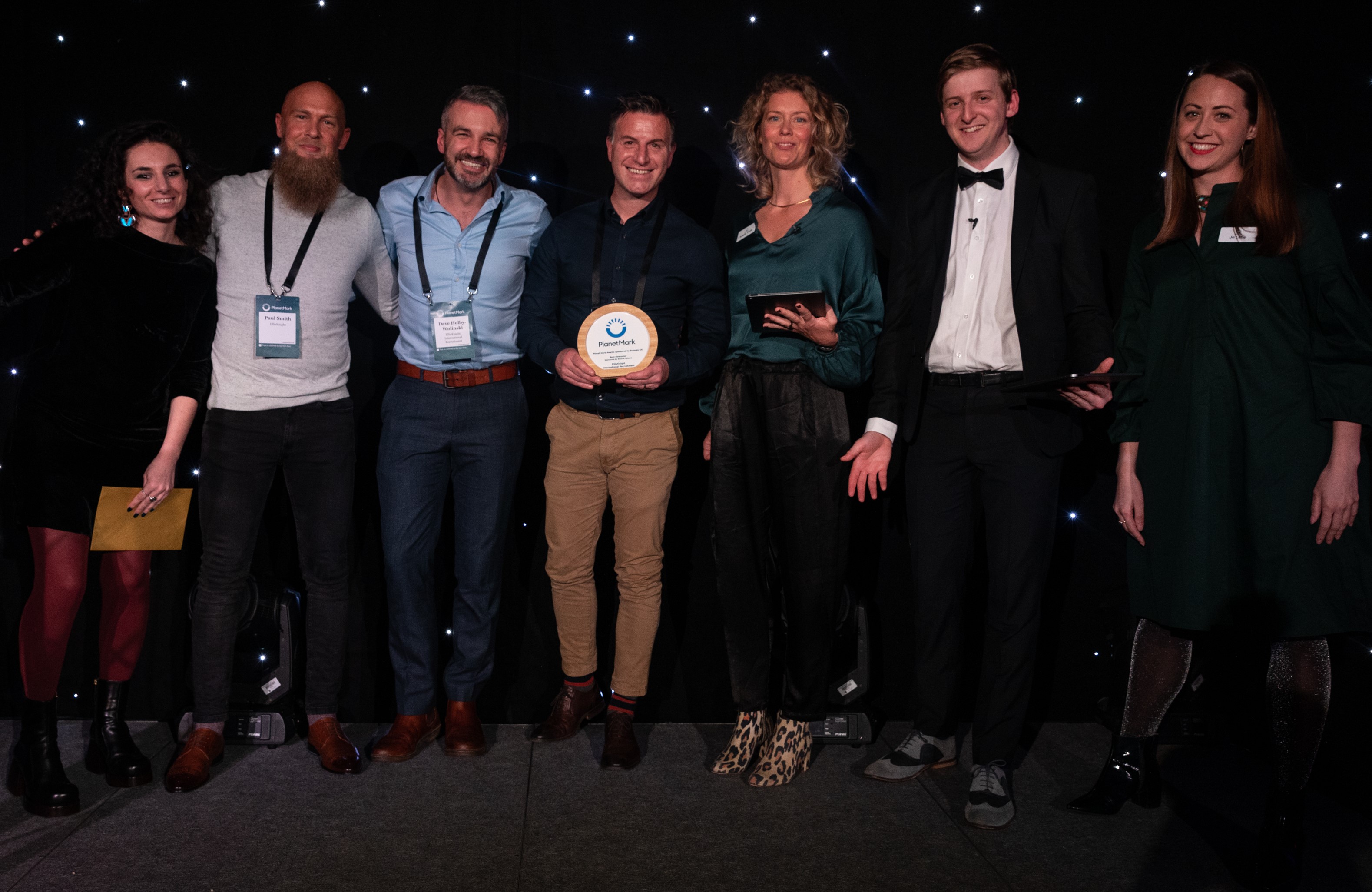
Berkshire's own EllisKnight International Recruitment has completed recertification on our Planet Mark membership.
As a celebration, our team were treated a Year 2 Energiser meeting from Hannah Dean-Wood, Engagement Manager at Planet Mark, to run through the key stats of the great work undertaken by the team.
Planet Mark, an Official Partner of EllisKnight International, is a membership organisation that supports forward-thinking businesses in their sustainability goals and certifying their achievements. When you see a Planet Mark certified member, you know that they are driving continuous positive change through their actions, people and reach.
David Holby-Wolinski, Co-Founder of EllisKnight International, said:
"We are so delighted to have recertified with Planet Mark and it ensures we continue to remain accountable to our sustainability pledge as an ethical recruitment agency. To enable us as a business to create a strong and transparent carbon reduction strategy we needed to build our knowledge and understand the numbers behind the science. The incredibly special relationship we have Planet Mark has allowed us to do just that and we're very proud to be now recognised as a sustainability game changer within our industry.
"We will continue to learn and be inspired by other businesses within the Planet Mark community – we have a collective responsibility to strive to make this world a better place for our children and the generations that will follow."
The purpose of becoming more sustainable is due to the increasing threat of climate change to our world and livelihoods. Earth's atmosphere now contains more than 420 ppm (parts per million) of CO2, a significant increase on other natural peaks of the gas in history.
With politicians and activists attending the COP 26 summit in Glasgow recently, it remains unclear how significant The Glasgow Climate Pact and follow-up actions will be against the unfolding crisis. Businesses and organisations that want to do their bit for climate and social prosperity are advised to adopt and follow the targets of the UN SDGs.
We are thrilled to report that between May 2020 and April 2021, our carbon footprint has reduced by 62.4%, well ahead of our 5% reductions year-on-year. Much of the fall can be attributed to changes afflicted by the pandemic, but it is our aim to keep many practices which led to this dramatic fall in place for the foreseeable future.
Our total carbon footprint was 18.4 (tCO2e) averaging at 2.3 (tCO2e) per employee. The biggest reductions came from business travel and electricity usage.
With a full breakdown of our impacts, we are still set to reach our target of net zero by 2050. Planet mark are encouraging us to reduce our footprint further by another 5% (0.9 tCO2e) by next year, however they accept that future reductions are banked against our Year 1 figures for the next two year due to the pandemic.
Steve Malkin, Founder and CEO of Planet Mark, said:
"We are delighted to have EllisKnight International join us at Planet Mark. The next generation of talent is increasingly conscious of their prospective employers' environmental credentials. By working with likeminded individuals in both directions of its supply chain, EllisKnight International is propelling the sustainability agenda in the recruitment industry and beyond. The team's enthusiasm in demonstrating the sustainable measures it has in place is remarkable, and the talk is backed up by some really robust policies. EllisKnight wants to do business differently and position itself as a leader in the recruitment industry, and it is well on the way to achieving these goals."
Our partners have recommended several steps to keep our reduction targets on track including:
- Participating in the Planet Mark Carbon Tour – Our Co-Founder, David, spoke at the Heathrow leg of the tour on 16 Nov
- Considering a net zero strategy
- Joining their online community platform
- Download the Planet Mark toolkits and other resources.
- Sharing our success stories with Plant Mark on LinkedIn
- Keeping up the good work and continuing to work towards the recommended 5% reduction for next year
We look forward to recertifying next year.
At long last, we have released the 2020 sustainability data!
The team at Berkshire-based recruitment agency, EllisKnight International have released our 2020 sustainability report on 23rd July 2021.
In an extraordinary year for everyone, and for so many reasons, who could have predicted the challenges that families and businesses would face throughout 2020? We took the time to reflect, time to review, and time to establish exactly what is that we stood for, while we reviewed our blueprint.
We have always positioned ourselves as positive disruptors within our sector, but we are only as good as the exceptionally talented team that we have. From becoming the first recruitment agency to achieve a Gold CSR Accreditation and The Planet Mark, to achieving carbon neutral status, and holding ourselves accountable against the United Nations Sustainable Development Goals, we will continue to learn and grow to ensure that a partnership with EllisKnight International is always a partnership for good.
Thanks to our partnership with Ecologi, we planted 144 trees in our EllisKnight forest between September and December. We also supported another three major tree planting projects in which over 4,400 trees were planted and supported six carbon reduction projects in which over 103 tonnes of CO2 were removed.
In those short three months, we achieved three Ecologi milestone badges for climate positivity, tree planting and carbon reduction. We also work with Terracycle, Climate Care, Carbon Footprint Ltd and Ecosia to ensure we do our part on climate action.
We twin a client’s toilet every month with a latrine in a developing community through Toilet Twinning which helps bring clean water and safe sanitation to the world’s poorest people.
We are a Living Wage employer, not only for our team, but all candidates we place also receive a minimum of the Real Living Wage of £9.50 per hour. We also offer staff interest free loans of up to £1000 PA to help with unexpected expenditures.
EllisKnight International is committed to equality, diversity and opposition to all forms of workplace discrimination and regularly monitor the effectiveness of our policy. Applications received to join our team, or the teams of our clients, are treated equally regardless of sex, age, sexual orientation, marital status, race, religion, religious beliefs, colour, nationality, creed, ethnic or national origin, gender reassignment or disability. We are proud signatories of the Race at Work Charter and the Good Business Charter. We also offer accessible recruitment campaigns and partnership with Recite Me which can offer an accessible platform for any vacancy.
“We wanted to understand how we could do this and still have a positive impact on society, the environment, our customers and our team. From “Kaisen” based ideas focused around small improvements to our accreditations, certifications and clear purpose – we use our business as a force for good, putting people and planet before profit.” – Patrick Graham, co-founder of EllisKnight International.
A recent report from B Lab gave insights into the progress towards the SDGs, the key component of the 2030 Agenda for Sustainable Development. It concluded that progress towards these goals have remained stagnant, especially the contributions from the private sector.
As a positive disruptor, we believe our reaffirmation to the SDGs is necessary, especially our continued support for Goal 1: No Poverty, Goal 5: Gender Equality, Goal 8: Decent Work and Economic Growth and Gaol 10: Reduced Inequalities as part of our business model.
We will also continue to support Goal 3: Good Health and Wellbeing, Goal 4: Quality Education, Goal 6: Clean Water and Sanitation, Goal 12: Responsible Consumption and Production, Goal 13: Climate Action, and Goal 15: Life on Land through our continued partnerships.
By the end of 2021, we strive to meet or exceed the following targets.
- Become B Corp Certified (achieved in March 2021) – We had a responsibility to be sustainable and put people and planet before profit. We wanted to set an example for the recruitment sector. As a result, we produced EK giving page in build up to verification
- Reduce carbon footprint by minimum of 5% over 2020/21 (achieved on 30th April 2021) – We introduced a working from home model which reduced commuter miles and converted all systems to online for a paperless office. Overall, we achieved a 63% reduction (skewed by the pandemic) but we still plan to reduce our footprint next year by another 5% from 2020-21 baseline
- Give all staff have membership of The Collective – Outliers Wellbeing community Group (achieved on 26th July 2021)
- Remain carbon neutral by offsetting our verified carbon footprint using our existing partners’ programmes
- Achieve our Ecologi target of 10,000 trees in the EllisKnight forest
- Achieve our B1G1 target to create 750,000 impacts
- Fulfill obligations to support our local communities by sponsoring local sports teams, charitable events, and educational projects.
We will continue to fundraise for Buddy Bag Foundation and Naomi House Children’s Hospice, giving as much as we can every year to support their wonderful causes.
Click on the image to see our Sustainability Report:
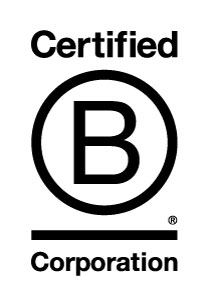
What a great timing to announce that EllisKnight International has become a certified B Corporation® during B Corp™ month!
We are enormously proud to have joined an amazing community of international organisations intent on using business as a force for good. These companies lead with compassion, purpose and a commitment to people and planet – an extraordinary thing to aspire to and the way we feel businesses should conduct themselves.
Our sector is not perhaps thought of in the best light and understandably so – recruiters have for so long often been revered as rogues and vagabonds. Certainly, we have always been so determined to set ourselves apart from that. Helping people find to find meaningful employment is what we do and love but even before we discovered the B Corp™ movement, we knew as a leadership group that we had a collective responsibility to help others and support our community. From organising family fun days to tackling indoor rowing world records to running seven marathons in seven days.
Click on the image to see our B Impact Report:
The inspiration
The global pandemic understandably meant a recruitment freeze for so many clients – all we could do was to ready ourselves to hold their hand whenever needed and to reassure them that the support would always be available. Despite the constant worry that comes with protecting the job security of a team that you love, the one thing it did give us was a little time to take stock - perhaps for the occasion in six years of growing a young business. Time to think, time to reflect, time to review our blueprint, our mission, and time to establish exactly what is that we stood for. It opened up a world of good that we could do as a business with the right strategy in place and we've not really slept since:
• EllisKnight became the first recruitment agency in the UK to receive both a Gold CSR-A Award and The Planet Mark Certification – we cannot underestimate the confidence these two partnerships, in particular, have given us on our B Corp™ journey.
• We took ownership of our carbon footprint, offset it and became a Carbon Neutral organisation with the support of Climate Care and Ecologi.
• We offset the carbon footprint of every candidate we place to support our client's sustainability goals.
• Ran competitions across our social media channels to plant more trees and twin client toilets with latrines in developing countries with the help of Toilet Twinning.
• Created international giving impacts simply by doing what we do on a daily basis via B1G1.
• We discovered the UN Sustainable Goals, using them as a basis for every EK initiative we could possibly imagine and subsequently became the first recruitment agency globally to be awarded a full set of five stars from Support The Goals.
• Became an Accredited Living Wage Employer.
• Created the EK Pledge to ensure we remained true to our commitments.
The moment we read the B Corp™ declaration was the moment we found our community home. The B Impact Assessment provided a brilliant framework to measure our impact and where we could make those improvements. There is still so much for us to do but we are excited by the partnerships we have in place and those that we are yet to make.
What does it mean to EllisKnight International Recruitment to be a B Corp™?
For us, it's the perfect way to make ourselves accountable to each other, to operate ethically at all times, and to strive to make this world a better one for our children. We believe that every company and candidate should expect that level of commitment from their own recruitment partner. The centre of our EK universe is our team. Every Friday morning, we make a cuppa and meet on zoom for our CSR Huddle. It's a favourite time of the week quite simply because we get to see everyone's lovely faces in one place. They continually inspire us to be the best we can be and they deserve that commitment.
We are so proud to be part of the B Corp™ community but prouder still of our team that enabled us to achieve it. Family is everything to us and without our EK crew, we simply don't have a business to make a positive impact in the world.
--------
Episode 5: Paul Hargreaves Chief Executive of Cotswold Fayre
Full episode transcription
Paul Smith: Take us back to the beginning if you could, kind of growing up; tell us about family and about your experiences at school?
Paul Hargreaves: From Manchester, lost the accent at university because no one could understand me. So, yeah, just normal suburban part of Manchester called Sale, if anyone knows it. Sale is on the edge of Wythenshawe, which at that point actually was the biggest council estate in Europe. I had a fairly privileged background; both my parents were doctors, but I was living on the edge of an area where it was very, very clear that many people had a lot less than I did.
That has actually probably quite significantly formed who I am now, because I could see that actually this wasn't fair. Why should I have all this stuff and those guys down there are not in a great situation? My parents, they both came from quite working-class families themselves. They had gone through -- the first people in both sides of the family ever to go to university. So, they had made it good themselves and I think to some extent that carried with it too much a sense of them being able to do it themselves and pride about that, which I probably reacted against to be with honest with you.
So, they would have the view that actually those people who haven't got very much that's their own fault, whereas I tended to take a bit more of a compassionate view on that.
Patrick Graham: So, were you always quite academic, given that your parents were both doctors? Did that kind of filter down to you? Were you always good kind of through primary school into secondary school?
Paul Hargreaves: My wife tells me I am, but I don't think of myself as being academic. In fact, I've got a good memory which is why I did okay at school, but I'm awful at working things out sometimes. My son is the complete opposite of me, he's a programmer for Bloomberg, and he's got a great sense of logic and working things out, obviously that's his job. I'm absolutely rubbish.
The school was, as many schools I think were in those days, particular this school, it was very narrow in what you could actually do, so you had very little choice in terms of what subjects you could do at A Level in particular. What I wanted to do I couldn't -- wasn't allowed to do; it was a mixture of arts and sciences. In those days you couldn't. Either you were science, or you were arts; never the twain shall meet.
Paul Smith: You couldn't combine the two.
Paul Hargreaves: Actually, the school was very science orientated. I would say in the sixth form, three-quarters of the sixth form were science and a quarter arts, which is probably the wrong way round to be honest. But to some degree, I was forced into a kind of science education higher up the school when actually, I'm actually much more of a creative, arts type person. The subject I did end up doing at university, zoology, was actually more like philosophy than science. Most of my work at uni was writing essays rather than doing experiments.
Having done science, I did biology, chemistry and physics with maths at A Level. I looked at the percentages of which subject was easiest to get into Oxford on?
David Holby-Wolinski: Very clever.
Paul Smith: Smooth.
Paul Hargreaves: Zoology had the highest rate of applicants versus people who got in so that --
David Holby-Wolinski: Playing to strengths.
Patrick Graham: I feel that for you and because of the school that you were that, because your peers were going to university, because your parents obviously had a university education, that it was kind of a natural step for you?
Paul Hargreaves: Yes, I think very much in those days. If you were clever enough to get in, that's what everyone did. Probably even more true now actually, because obviously many more people go to university now than then. Crikey, if I had said, "Actually, no I'm not going" then --
Paul Smith: There would have been a family feud.
Paul Hargreaves: -- school would have probably expelled me.
Patrick Graham: Really?
Paul Hargreaves: Yeah, a very, very high percentage of that school went to university.
David Holby-Wolinski: That's that thing, I think. I grew up on a council estate in Tilehurst in Reading. All I wanted to do was to be a footballer and that was the only thing that I wanted to do. I had no academic bone in my body. The percentage of people that actually went to university from my school I think would be very low. I mean it wasn't a brilliant school and nobody in my family had been to university ever.
Paul Smith: So, it's a different expectation which is really interesting. I wonder then as well Paul, for your children, looking at the world that we're in currently, would they have been encouraged to have sort of gone to university and to have studied there; or being obviously then a successful businessman at that point, would you have viewed the world differently; would you have felt that it was essential that they did go for the life experience; what would have been your recommendation then?
Paul Hargreaves: I don't know if you've ever played the Game of Life?
Paul Smith: Love the Game of Life.
David Holby-Wolinski: Yeah.
Paul Hargreaves: Used to play with the kids and if you remember at the start of that, you choose whether to go to university or not. If you go to university, I think the way the game works is possibly get more things open up later on, but you end up with a load of debt.
Probably the game needs to be redone with a lot more debt than when it was first created, but actually when we played, when I played with my kids, more often than not the person who didn't go to university won the game.
Paul Smith: How interesting.
David Holby-Wolinski: Oh really?
Paul Hargreaves: So, yes, should be even worse with the greater debt. But I mean, I've got four kids and one is still there, but three out of four have gone to university. Actually, one of them had various struggles and I think they feel the pressure to go more than I would put that on them. In the business world, a lot of people I know who run their own businesses didn't go to university and are very, very good at what they do. So, I am very laid back about it as far as my kids are concerned.
On the other side of the coin, I know whilst my subject, zoology, I've never touched since the last exam in my final year. I do know that that experience of being at university helped develop my personality. I was actually quite shy before I went to university and it certainly brought me out of myself and gave me a lot more confidence, I think, in terms of what I do. So, that side of it I --
Patrick Graham: The first time living away from home as well, I guess?
Paul Smith: Yeah.
Paul Hargreaves: Yeah, it would be, yeah.
Patrick Graham: Learn how to cook?
Paul Hargreaves: Yes, all that. You grow up don't you, but I guess you can do that by getting a job and moving elsewhere.
Paul Smith: I suppose so, yeah, but I had the same. When I went to university it was my first time away and a lot of it was growing up. Then, I went down to Plymouth and I remember I went down on my first week and opened a bank account. I went down to Barclays and I was just there on my own, didn't know anyone, "I'd like to open an account please", and the woman said, "All right my lover". Where on earth am I living? What have I done? I need to get back to London and get a job in a bank".
David Holby-Wolinski: This is too much; I can't cope here.
Paul Smith: But that growing up is important for me.
Patrick Graham: I think it is and being away from home and managing your own finances. I can remember I had a similar thing setting up a bank account at university and I loved it. I specifically chose NatWest because they gave you a free CD player and I'd never owned one, so this is amazing.
Paul Hargreaves: I think I might have got that as well, yes.
David Holby-Wolinski: You said three out of your four children have gone to university. What was the reason that your one child didn't go to university?
Paul Hargreaves: He's mildly autistic actually, so he did very well to get a maths GCSE level pass and that was it. Yeah, he's had his struggles over the years.
David Holby-Wolinski: There's a big thing that we're discussing from a D&I perspective. Actually, there are an awful lot of kids that are either in mainstream education but with a level of autism, or they're in non-mainstream education looking for that kind of either further education or into a job. Actually, we've had so many good discussions recently about what can we do to make sure that kids that have got autism or ADHD, how could we make a difference to, like your son, going into employment.
Paul Hargreaves: I think a lot of it comes down to confidence again, doesn't it? The good thing about Jacob is I paid for him to go to a private school, not a special school, a normal private school, but much smaller class sizes. I think he would have ended up in all sorts of trouble if he had gone to the school the others went to; too many bad influences. He is socially actually very good. He's always been very polite; I think partly due to that school. It certainly doesn't come from me but ...
So, he's always been very good at interacting with adults. For example, he rings my dad more than the others and he's quite gregarious in that respect. But, it's a bit formulaic with him because of what he's like. Adults tend to love him, when he was a kid and obviously now he's an adult himself; the job he does is kind of a fairly routine job. Generally, they like that routine of work.
Yes, so we come onto the Cotswold Fayre story in a minute, but we outsourced all our logistics side four years ago, which meant that we couldn't as easily employ people who needed a leg up in life, which is what we very much did at the beginning. Most people who work here now are skilled in one way or another, but the really exciting thing about what we're doing next year in opening a food hall and restaurant is that we really want to make an effort to employ a percentage of people who would find it difficult to get work.
It is totally different to autism, but I went to a café in Jersey last year and all the front of house staff in the café were Down Syndrome. If you are ever in Jersey go there. I was almost crying as I was eating my soup.
Patrick Graham: Oh, bless you. I'm not surprised.
Paul Hargreaves: It is so moving, because they're such generally happy disposition. They are the perfect disposition for that job, because it just made everyone in the café feel absolutely great.
Paul Smith: That's exactly what hospitality, customer facing, lovely, engaging.
Paul Hargreaves: Absolutely.
Paul Smith: What a fantastic thing to do.
Paul Hargreaves: I think, you know, people are more tolerant, if they make mistakes and stuff like that.
Paul Smith: It's okay.
Paul Hargreaves: They're not going to shout at them, are they?
David Holby-Wolinski: No, that's it.
Paul Hargreaves: In their heart of hearts.
David Holby-Wolinski: Have you heard of an amazing business called Auticon; have you heard of those guys?
Paul Hargreaves: I've heard of that, yes. I don't quite know what it does though.
David Holby-Wolinski: Yeah, it's a tech business that I think Richard Branson's invested in.
Paul Hargreaves: Ah, yes.
David Holby-Wolinski: They employ autistic people because they see it as a superpower for the IT industry.
Paul Hargreaves: Yeah, they are, yeah.
David Holby-Wolinski: So, all of the people that work there are on the spectrum of some sort and run an amazing business, so we are keen to --
Paul Hargreaves: They make the best programmers, I think.
David Holby-Wolinski: Exactly, yes. So, there are some good stories there as well, so we're keen to find out more about what those guys do and promote those guys as well, so that people can see that there should be opportunities for everyone.
Paul Hargreaves: Yes, well there are. We are not very good at seeing them sometimes.
Patrick Graham: That's it.
Paul Smith: I think you are right.
Patrick Graham: From where you grew up really, you always had a view on social injustice, those that had and those that just round the corner don't have?
Paul Hargreaves: Yeah, I mean I've probably only come to that realisation more recently in terms of looking back. I've got a purpose statement, because I think that's helpful in terms of steering what I do now and very much part of that is injustice and fighting injustice. I've always hated injustice actually, wherever it is, anywhere in the world, UK or worldwide, so that sense of wanting to re-right injustice is very important to me personally. Different things motivate different people but that is probably one of my main motivators.
Patrick Graham: I read somewhere as well that one your first jobs from leaving university was a lorry driver, an Oxford grad that's a lorry driver, and you didn't get the warmest welcome everywhere you went as I understand?
Paul Hargreaves: No, I just got treated like any other lorry driver. That was mainly an accident to be honest. I didn't really know what I wanted to do so I thought, actually, let's take some time out and work out exactly what I'm trying to do with my life.
I started out in a van, and being the little boy driving a van, all the rest were in trucks. Then one day, I took a short cut back to the depot, down a road I had been down a number of times before, but it wasn't the official route back. I thought this road had a ford, which was normally just a puddle in the road. Going down the road I thought, "This looks a bit deeper than normal; I'd better speed up". So, I hit this ford at 40 miles an hour, never even made it halfway across.
Paul Smith: Oh no.
David Holby-Wolinski: Oh no.
Paul Hargreaves: Then there was water coming in, the windows, the doors. So, obviously I had to get out of there and it was only about a mile from the depot. Ran back, I mean imagine it, only been given the little van to drive, surely you can't do any damage in that. Got back to the depot and told them what had happened. They made me go in the breakdown truck and obviously, had to wade into the middle of this river, to hook up the van to the breakdown truck. I had completely wrecked the engine.
David Holby-Wolinski: I moved back from Southampton to Reading, again I had no idea what I wanted to do. I had left school, failed footballer, got a couple of jobs. Moved back and my brother was a delivery driver. So, he said, "Come down here, it's a good laugh". My sense of direction -- in fact I don't really know what I am good at, but my sense of direction is absolutely awful. It was like the time before sat navs, so I used to go out with like these A3 pieces of paper. I mean my route was massive, I used to highlight where I had to go.
Paul Hargreaves: It was a nightmare. You basically got given 20 drops, all over the South West, which I didn't know the South West of England at all. Yeah, finding places that you'd never been to before, 20 of them in a day, it was tough.
Paul Smith: Multidrops.
David Holby-Wolinski: I used to look at the sheet as soon as you saw a house name on there, you go, "How am I going to find that?"
Paul Smith: Carnarvon and that's it. That could be anywhere.
David Holby-Wolinski: Honestly, the amount of vans that I broke. I pulled into a farm because I needed to reverse because I had gone the wrong way. So, I had a quick look in front of me, had a look in my rear-view mirror, pulled into the farm, slammed it in reverse and just smashed straight into the front of a car.
Paul Smith: Oh no.
David Holby-Wolinski: He was following me that closely I couldn't see him. Followed me into the farm, I reversed straight into the back of it. He came out, he just looked, he was absolutely distraught. He's like, "Oh mate".
Paul Hargreaves: After the van incident, I had the punishment of working in the warehouse for a day, but after that -- I was obviously no good in there either -- so after that, they put me out with a seven-and-a-half-ton lorry, potential to do far much more damage.
Paul Smith: When I first started in recruitment years and years ago, I got a company car. I had it about a week, and I used to live in Putney. Some friends from university came over, this is my first job since uni; friends of mine came over and said, "Look, come on watch the boat race". I said, "Okay", come down anyway and we drove down to the river and I was like, "You can park anywhere, right next to the river. It's really surprising, it's so easy to park down here".
So, I parked this brand-new BMW that I'd been given, parked it next to the river. This is on the Saturday, we went to the pub, watched the race and so on, had a few drinks. Monday morning, I went to get it, I left it there on the Sunday. It was full of water. Everybody knew, "Don't park there because it floods".
Paul Hargreaves: Yeah, I've heard about that.
Paul Smith: I literally had to -- I went back to the flat and I got a drill, and I drilled a hole in the footwell, because it was all carpet, and it was just leaking out. Anyway, I got it valeted and shampooed and everything, I thought, "I'm going to get in trouble". The alarm was going off all the time, but I was driving down the motorway and the alarm would go off.
Anyway, when it came to give the car back, this guy came to inspect it and I thought, "I'm going to be trouble here, he's going to find all sorts". He said, "Yeah, no, it's all fine, and then he opened the boot and he looked -- "Is the spare wheel ...?" We opened it up, River Thames. He said, "What's that?" I said, "It's a long story but can I get away with it?" He said, "Yeah, no problem and he took it off on the back of this trailer with the alarm going off all the time because the electrics are snookered.
Paul Hargreaves: So, you're the second person I've heard of probably parking in that spot.
Paul Smith: Yes, there must be residents looking, "Here's another one. Look at this one, he's parked right next to it, looks like a brand-new car".
Patrick Graham: You've had your character building, what comes next?
Paul Hargreaves: A lot of my friends had moved to London, so I really wanted to move to London. So, looked for jobs, still didn't really know what I wanted to do, so I don't even know why I made this decision, but I ended up looking at sales jobs. First, selling office furniture; second, selling coffee and tea vending machines. I did really well in sales. They were the only three years I was ever employed by anyone else, actually.
Patrick Graham: Paul, what made you a success, do you feel, within sales; was that kind of inbuilt on you, or was it just an ability to just have the gift of the gab and charm; where did that drive come from?
Paul Hargreaves: I think ability to relate to all sorts of people. Growing up, university, I encountered people who had been to public school for the first time like David Cameron; he was at the same college as me. Lorry driving. I'd had a broad spectrum of being able to relate to lots of different people in lots of different backgrounds. Obviously in sales, one day you're selling to a partner of a firm of solicitors in the City and the next firm of solicitors, it wouldn't be the partner that made the decision but it's the guy who used to be a messenger when he was a 16-year-old lad and has grown up and he's now the premises manager.
So, yes, all sort of people, just being able to connect to them and listen to them. The first law of sales is actually two ears, one mouth, use them in that proportion. So, I think most salespeople probably do too much talking; I did more listening.
David Holby-Wolinski: Never realised we had so much in common, Paul. When I was 16, just finished school and my dad worked for a big company in Reading, and I needed a new pair of Predators. So, it was like, "Son, come and do some work, we've got something for you". I was, "Okay, brilliant". In fact, it was a proper full-time, or should have been a full-time job. "Is that all right? Are you ready for training?" I was like, "Yeah", he went, "Okay, brilliant there's the lady that's training you. You're going to be filling up vending machines". I was like, "What? There's loads of them in this building, absolutely loads of them".
But my dad and his mate who were doing maintenance, every time I'd be on their level, they'd come past and they'd be like, "Vending machine repairman" at every single person. I lasted about half an hour I reckon. Since then, that's my work ethic.
Paul Smith: I love it, who knew that there was so much in common.
Patrick Graham: So, how did you kind of get onto kind of setting Cotswold Fayre then, Paul?
Paul Hargreaves: Back to the justice thing really. What I really wanted to do was do some stuff inner city and try and make things better for people. I think for 11 years, I was doing charity stuff of various descriptions, initially in Peckham and then Deptford, South East London. These were basically traditional charity stuff, which now again looking back, a lot of charity work still is mopping up mess that's created either by bad government policy, bad businesses, or just generally bad situations people have got themselves into.
So, yes, we did stuff with old people, kids. I've probably been to prison at least 50 times. Most of my neighbours where I lived were in and out of prison. In fact, the biggest burglar in the street lived next door. I always felt quite safe actually being a direct next-door neighbour, because surely he wouldn't do us. I did catch him in the garden once, but generally --
David Holby-Wolinski: In your garden, oh Paul?
Paul Hargreaves: He did burgle most of the houses on the street but not ours. It was very bizarre going to the prison, it was Belmarsh, which is near Woolwich. I used to go into prison, take a team in there. We used to do stuff and going into the big kind of courtyard with all the cell windows looking in, and quite often when I went in people used to, "Oi, Paul! All right, mate". Literally, I used to know so many people in there, it was ridiculous.
It is very gentrified now that area, but it was an extraordinary area. I mean I used to play football when I was there and the other central defender, Lee, was a joiner by trade but he was an illegal debt collector and he actually knew the Krays. When someone owed someone money, they used to get hired to basically go and kidnap them, force them to write a cheque and then drive them round the M25 for four days until the cheque had cleared.
Paul Smith: Oh, my word.
Patrick Graham: Wow, what happened to the -- I probably don't want to know what happened?
Paul Smith: No.
Paul Hargreaves: He lived at the bottom of the road; his business partner lived pretty much opposite us. Soon after I met him, I only really just got to know him through playing football and he called me to one side one day; he said, "Paul", "Yes, Lee?" "If any time you need a gun, just let me know all right?"
Another time I happened to mention that the car had failed its MOT he said, "You should have told me, I've got a few certificates upstairs. I could have sorted you one out".
David Holby-Wolinski: Everybody needs a mate like Lee.
Patrick Graham: How does then Cotswold Fayre, kind of begin to emerge, because of course it sort of started off as this small kind of hub and working with artisan producers. Where did the desire I guess come to then say, "Look, now I'm ready to make my mark and work off my own back"?
Paul Hargreaves: If only it was that strategic. It was quite simply due to running out to money, to be honest with you. So, initially with the charity work, a few of us doing it and we set up a trust; and a few of my friends from Oxford, who had big jobs in the City, kind of liked what we were doing, so they were very generous and put money into this trust, which in effect paid a team of four of us, which was great.
But as time went on, they started having kids and couldn't give as much money away. Also, I started having kids, more importantly for me. I was aware that I needed to do something to earn some extra money and my in-laws at the time had a small craft business in the Cotswolds making meringues. So, I just started selling these meringues to local delis and farm shops in and around London; then picked up a few other products from the Cotswolds, which is why the name is the name, Cotswold Fayre.
For me it was one day a week; I had a guy do some of the deliveries for me, someone else did a bit of admin, but it was very, very part time. I wouldn't call it a business, it was more of a hobby, but it did pay a few bills, ran my car and stuff like that. So, it was a very gradual start to the business. But the key moment was getting back from a two-week holiday and it was in the days of answering machines. You used to have a little tape in there? No, you are too young. Rather than taping onto a chip, voice message on a phone, a landline, used to be put on a little tape. You're looking very blank faces.
David Holby-Wolinski: What's a tape?
Paul Hargreaves: Yes, exactly, what's a tape? Anyway, came back from holiday and this tape was full of orders. The messages at the end were saying, "Why haven't I got my order?" "I was on holiday, get over it, what's the problem". I thought well actually, "No, this isn't very good, is it?", so either have to turn it into a proper business or forget it basically. So, well you obviously know what happened.
Yeah, so I met a guy in Reading, he'd been doing charity stuff in Africa actually, and he'd come back, and he was in a similar position to me, he didn't really know what he wanted to do; so, met him through an Australian friend. The great thing about him he was the opposite of me in terms of his skillset, so he was very good at admin and IT and organisational stuff and I was really only really good at buying and selling stuff. Together we set up a warehouse in the middle of Reading that is 1999, and that was the start of Cotswold Fayre.
Of our first five employees, three of them were people with issues of various kinds, so we had one ex-drug addict; we had another one who was an alcoholic; and someone else had just come out of prison. So, our first five employees, 60% were people probably who wouldn't have got jobs elsewhere to be honest with you. That was the start of what we do now, although I still really wanted to do charity stuff and probably in another part of the world. In my heart of hearts, I felt like I'd been forced into starting a business almost, which probably isn't what you want to hear, but it gets better.
So, some of my friends had gone to work with an orphanage in Northwest China. They were being persecuted 21 years ago and they still are now. I've seen it and I've also been followed by the Secret Police when I was over there. So, they were working in an orphanage, and I thought, "I'd love to come out here. How great it would be for my kids to learn Chinese, what a great asset for the future". So, I'd pretty much decided on the plane on the way back, "We're going to start looking into moving to China". Dave, my business partner, was running the business obviously while I was away.
David Holby-Wolinski: Did your wife know?
Paul Hargreaves: Yes, she did, yes.
Paul Smith: That's an awkward conversation.
Paul Hargreaves: No, she was up for it as well, fortunately.
David Holby-Wolinski: Where we're relocating to? Devon? Not quite. Slightly further afield.
Patrick Graham: How's your Mandarin.
Paul Hargreaves: While I was away, he'd decided he didn't want to do it anymore. I was going to give the business to him, because there wasn't much to give to be honest. I wasn't being that generous. We weren't making any money and actually trying to pay for two of us to run it probably was too much. So, yeah, I made the decision that I was going to give it to him when I got back but unfortunately, he beat me to it. By now, in 2001 this is, we probably had eight or so people working there. It kind of forced me to leave South East London and move west.
David Holby-Wolinski: Did you feel kind of like you've got that balance right between running a business that's sustainable and has got some income coming in so that you can pay staff and employ people, as well as create an environment where people can come in and thrive and get that routine and have that pride in working and so on?
Paul Hargreaves: The balance was completely wrong, 60% is too high just for anyone listening. I think 10% is doable maybe 20, but Timpson, actually I'm sure you know, they employ 10% people from prison. I suspect that is probably about right.
David Holby-Wolinski: 60% is high.
Paul Hargreaves: Then it was only me doing it, because Dave had left. The ex-heroin addict was there for years, great story: he got married and became a househusband looking after his step kids, so he was there for many years after that.
Paul Smith: Yeah, amazing.
Paul Hargreaves: But he came in one day, obviously had arrived at home, a speeding ticket. Okay, fine, they'd just put speed cameras up all over Reading. The next week he had another two speeding tickets, and it was pretty much all the same camera. There was one he drove past every day. The long shot is, he then brought a bundle of three or four more so all together, I think he'd paid the first two, but then he had a total of six speeding tickets, that's over your ban.
So, I bundled up four speeding tickets and wrote a letter to Thames Valley Chief Constable saying, "Look, this guy is working for me, he's been a drug addict. He's now got a steady job. Please have some mercy on him if you don't mind and can we have a clean slate". Never heard anything ever to this day. Never had a reply to that letter, but those speeding tickets disappeared. So, I don't know who got the letter but maybe someone probably thought, "Actually, I'm going to do the right thing here and cancel them all", and then none of us heard anymore.
David Holby-Wolinski: Well, could it be that maybe that he had contact with Lee and thought -- yeah.
Paul Hargreaves: No, no.
David Holby-Wolinski: Let it go, just let it go.
Paul Hargreaves: I kept Lee well out of Cotswold Fayre.
David Holby-Wolinski: When you got back from China, and Dave had then kind of beat you to handing the business back over to the other person, was that start of your first official business plan where you thought, "I've got to now kind of look at what the business is going to look like moving forward"?
Paul Hargreaves: You might be shocked; I've never really had a business plan to be honest with you. I don't really believe in them. I do believe in them in that if you can't put it on a single PowerPoint slide, they're generally a waste of time. So, we do have one but it's very, very simple. Obviously, I felt slightly dropped in it, I suppose, and maybe slightly resentful of having to move out of London.
The fortunate thing, the business was growing fast. Obviously, we sell speciality foods to retailers, so people had woken up in this country to actually what good food tastes like and looks like. It was the start -- the TV chefs were becoming celebrities around that time. Artisan shops were opening up all over the place. Farm shops that we supplied who were sheds 21 years ago are now as big as supermarkets with 150 car parking spaces. That is how much the industry has grown and we were fortunate in being in there at the beginning and managing to ride that crest of the wave. So, the business was busy.
It was all the normal pressures of a start-up business, running out of money, running out of people, running out of stock. Really for probably the next eight years, I was focused mainly on getting the business to a place where it was sustainable in the financial sense of the word and profitable. The big difference now is there's a lot more business. The great thing about the B Corp movement is you've got a community of people who are doing this, so you can nick ideas from other people and be inspired and encouraged by what other people are doing.
I had no idea there were other businesses in the world that were trying to use business as a force for good; no idea at all. I didn't know anyone doing it. I hadn't heard of anyone doing it. There weren't any books about doing it. So, it felt quite isolated I guess in that respect and I'm probably a bit embarrassed by this now, I stopped doing it really. We just focused on being a start-up and we moved warehouses seven times in 21 years. So, pretty much every three years we were having to move somewhere bigger. Me basically not really having a management team in those days, it was me who was making it all happen.
David Holby-Wolinski: So, going back to when you just said the normal pressures of starting a business, who were you kind of relying on; who was there to kind of support you or just that little guiding hand to say, "If all the pressure's on you and you're going home and you've had a busy day or a hard day or the money isn't coming in", who have you got to talk to in those early days?
Paul Hargreaves: No one.
Paul Smith: Really?
David Holby-Wolinski: Wow.
Paul Hargreaves: I mean that is the big mistake on my part. I first had someone like that in about 2013, which was great, and there's no coincidence that we've radically changed what we do and how we do it.
Paul Smith: Extraordinary.
Paul Hargreaves: No, big mistake by my part. I should have gone out and found someone like that. That is one reason I'm very keen to do that for other people now, because I know how much everyone needs definitely one person, maybe two, that they can talk through problems with.
Patrick Graham: Is that a big piece of advice you'd give to anyone that is listening?
Paul Hargreaves: Absolutely, yes.
Patrick Graham: If you're starting a business and you're doing it on your own, make sure you've got people around you in the first instance.
Paul Hargreaves: Yeah, and make sure they're the right people around. There are a lot of parasites in the business world who have never actually done much themselves but are very good at getting other people to pay them for advice. Make sure it's someone who's actually done it, that's got the scars to prove it, made the mistakes; not someone who just talks about doing it. Go with your gut, the times I've made massive mistakes is when I've done something that other people thought I should do rather than doing what I felt I should do. One of those mistakes almost killed the business completely.
Patrick Graham: Really?
Paul Smith: Oh, wow.
Paul Hargreaves: Secondly, don't wait until you can afford to get good people. So, when you're a start-up, you've got financial pressure the whole time and you think, "I'd really like that good person to come and do finance or that good salesperson or that good operations person, but I can't afford them. I can't afford that salary". You can't afford not to have them. Those good people, they will always -- whatever extra you're paying them, £5, £10K a year, whatever, they will always save you more than the extra you're paying them.
I mean I've done it for the last seven or eight years, but prior to that I didn't; big mistake. We would have got ourselves out of so many holes if we'd had better people earlier. Worth their weight in gold, to be honest with you.
Patrick Graham: Yeah, exactly.
David Holby-Wolinski: I think that goes back to being a purpose-driven business and having those really strong core values, because that is exactly what people are looking for now.
Paul Hargreaves: That, I think, is the reason that traditional businesses that are only about making money for the shareholders are going to fail; and businesses that are actually trying to do more than that are going to succeed, because the latter is going to get the best people. The best people don't want to sit there making shareholders even richer than they are already. The best people want to make the world a better place and more and more certainly after the pandemic, that is the direction of travel.
The best people want to go and make a difference, not just to a company but to the world, and so the people with those values and that purpose are going to attract the better people; even for less money actually than they would get elsewhere. We've got a number of people working for us who could be earning a lot more elsewhere, but they've chosen to work for us.
Paul Smith: It's incredible.
David Holby-Wolinski: There's, there's a big shift in what people are looking for. Gone are the days where people really want that big corporate name on their CV. It's much than that now. People want something where they're going to go in for values, they've got autonomy, they've got a really nice workplace; that is what people want. They want to work for a business where their values align.
Patrick Graham: Cotswold Fayre became a B Corp certified back in 2015 and there's a huge amount around becoming a B Corp certified organisation. So, changes obviously to your Articles of Association, so making sure that people are publicly aware of your commitment towards social and environmental values. Paul, talk to us about that journey towards becoming a B Corp. What was it that sort of really caught your eye, because obviously Cotswold Fayre were one of the first organisations in the UK to receive that accreditation?
Paul Hargreaves: Probably ten years into the business, you know, we were doing well making profit and thought actually, "No, let's back to doing something good in the world". So, started to get involved in an orphanage in Kenya, Children's Centre, two schools, etc; went out there with my daughter in 2010 or 2011. That was the first looking out there thing that we did as a company. I saw then actually, again some of this is from hindsight but definitely at the time as well, someone in their spare time offered to raise money for it. Someone who worked for us part-time she said, "I'll tell you what, the other half of my time I'm going to create this ball", "Great".
Just having something that we were doing as a company, that wasn't about the day-to-day nature of the business, made a huge difference to the kind of atmosphere in the business; so that was a taste, really, of B Corp back in the day.
Coming back to the office after that and people would ask, "How did you get on?" I literally could not talk about it for two weeks after I came back, because if you haven't been to a place like that, the kind of realisation of how different their situation is to ours is remarkable. These are people who have absolutely nothing. They have the clothes they stand up in and the little hut that they live in and maybe a bit of land with some stuff growing, and that's it. The kids have no toys. In fact, when we go out there, we take things like bubbles, the blowing bubbles kind of thing. They are absolutely over the moon. Whatever they are, 50p of bubbles can give hours of entertainment.
Paul Smith: Or joy, yeah.
Paul Hargreaves: It's profoundly moving and makes you realise how lucky we are here. We all know this stuff in our heads but unless you have actually been there and encountered it, it doesn't get any further down than the head. Almost the best thing about being involved and I think I've been out there ten times and normally take other people with me, when I go, is seeing the people I take with me transformed.
Patrick Graham: Wow.
Paul Hargreaves: There's a guy, he's been twice actually, his wife came the second time, he's a supplier of ours, dairy farmer in West Wales. We normally fly to Nairobi and drive across down through the Rift Valley and there you can see Zebras and baboons and things; it's quite fun for people who haven't been before.
Paul Smith: Wow, amazing.
Paul Hargreaves: Slightly less fun the first time Ian came because every tractor we saw, he was telling me which make and model and year it was.
Patrick Graham: 1967, John Deere.
Paul Hargreaves: That's it.
Patrick Graham: First brought over from the Americans.
Paul Hargreaves: It sounds like you know it. In those days no electricity, we've actually paid since for electricity to come to the village because solar lights run out of light about 8.30 pm, after it's been dark a couple of hours. You've got nothing really to do apart from talk to each other and I didn't actually know Laurence terribly well, the first time I went with him. So obviously, great opportunity and the second night we were there he said to me, "Paul, thank you for changing my life". I said, "What? I haven't done anything Laurence. You've just come with me". He said, "Yeah, I will never be the same after this". That was just from being there for 48 hours.
David Holby-Wolinski: When you listen to celebrities when they do Children in Need and they do visit the places that you're talking about Paul, they talk about being transformed as a person and actually the deep impact it has and then they speak -- when you listen to their friends -- it kind of impacts not just that person; it impacts that whole family.
Paul Hargreaves: Yeah, and we tend to grow up thinking that we have got a lot to teach the developing world, which we have in some respects; I'm sure we have. But they can teach us just as much, if not more, I think.
Patrick Graham: But it's the support that you've given, not only to international projects in dire need that needed such support, but also closer to home and the work that you've done with City Harvest. I think there were some facts and the figures that the boys and I read that actually, I think last year alone, over seven tons of surplus food were donated, which I think equates to something like 17,000 nutritious meals to those who need it most, which is an extraordinary contribution.
Paul Hargreaves: We slightly undersold ourselves on that impact report, mainly because there was a big donation went just after our year end, so I think within the last 12 months it is actually 45 tons of food now.
David Holby-Wolinski: Blimey.
Paul Smith: Extraordinary.
Paul Hargreaves: That's phenomenal during the pandemic. In fact, Laura who runs City Harvest has just been awarded an OBE for the work that they did during the pandemic.
David Holby-Wolinski: Surely, yours is to follow, Paul? Who can we petition?
Paul Smith: Right, let's start bowing. You started talking about when you started your business about farm shops had taken off. Did you see kind of buying habits have really changed and shoppers are more ethical and want to support more ethical causes now; are you still seeing that?
Paul Hargreaves: Yes, I mean there has been a big rise in the power of the community actually. I think that will be a lasting legacy of the pandemic. 73% of people during the pandemic shopped more locally than they have done before. The data I saw a couple of weeks ago, I think 40% of those planned to carry on doing that post-COVID.
Paul Smith: We were talking about the COVID and it's such a big topic anyway, isn't it, but one of the things we were talking about is, is it a real chance for everyone to re-evaluate everything? It is crazy times, but is now a time to reset everything? Let's have a look at environmental policies or your recycling habits, or now is the time to make a change. Actually, even a little change can make a massive difference if we all do it together.
Paul Hargreaves: I think that is the big thing isn't it, that people can get overwhelmed by climate change and think it is this huge thing, "How can I possibly make a difference?" Actually, don't let perfection get in the way of progress. Doing your bit is all you can do. You can't do someone else's for them; you can only do what you can do. But if everyone does that, it will make a difference.
Patrick Graham: Of course it will.
Paul Smith: I think looking at lockdown as well, where everyone is in together and talking. Attenborough and the plastic bags in the ocean made a massive impact on families talking about the situation as well, didn't it?
Paul Hargreaves: In my view, there are three pillars of capitalism: money, the planet and people. Over the last 12 years, those three pillars have been smashed. So, 2008 obviously financial crash and all those industries built on money being a commodity, is a house of cards. It all came crashing down. No one trusts any banks anymore, blah, blah, blah.
2019 like you just said, greater understanding of climate change and the fact that everyone has to do something about it, Extinction Rebellion, Blue Planet you mentioned. September even the Financial Times had a front page that said, "Capitalism, time for a reset". This is the Financial Times by the way, the bastion of capitalism press said, "It is not working anymore".
So, I think last year was all about the planet and obviously still is. This year has all been about equality and the fact that through capitalism, people have been abused and actually capitalism isn't working, because the elite are getting richer and richer and actually normal working people are getting poorer and poorer and obviously that came out through the pandemic, with those working for the NHS and van drivers and supermarket workers.
Did you know by the way, Sainsbury's and Tesco, the CEO gets paid, of both of companies, in a day, what their shopworker gets paid in a year. Who thinks that's working? Anyway, 2014, I heard about B Corp. This is through -- I don't if you know COOK who are a frozen food company. These are gourmet meals. They were one of our first customers actually, because they started around the same time as us. We supply all their dry goods into the shops.
Ed's a mate of mine and he said, "Paul, I've just been to the States and I've run across this thing called B Corp", "That's an odd word. It sounds a bit American to me, Ed. Are you sure this is right for us?" Anyway, I was slightly sceptical but then I looked and did a bit of reading, looked online. I thought, "Actually, this is exactly what I believe in. If only I'd discovered these people in 1999, I wouldn't be in the mess that I was in now". We weren't in a mess, but it would have transformed the company. So, yes, as you said, in 2015 they wanted a cohort of companies to launch in the UK.
Paul Smith: To lead the way.
Paul Hargreaves: I think 42 of us that either had already -- a few had already, but generally a lot became B Corps in 2015. Actually, we were doing quite a lot right. So, without too much work we had got over the line for B Corp.
B Corp's basically do three things: they change their Articles which is more about changing the legal identity of a company. So, if I walk out of my house today and got knocked over by a bus down the road, Cotswold Fayre has to have people and planet on the same footing as profit. So, the legal entity of our company is changed, because we've changed our Articles of Association. Then they choose to be assessed every three years on how good they are for the world; and thirdly, they produce an impact report. This is telling the world this is what we've done for you this year. So, those three things are what a B Corp has to do and what they do do.
The interesting thing is, you might not know this, but I found this out the other day, it is currently growing faster than it's ever gown in the UK. So, since lockdown in March, there have been 100 new B Corps.
Paul Smith: That's extraordinary.
Paul Hargreaves: There are 397 now, by the way.
David Holby-Wolinski: Fingers crossed we're going to be one in a few weeks.
Paul Smith: Yeah, that's it.
Paul Hargreaves: Well, you might be the 400th; how about that?
David Holby-Wolinski: Oh lovely.
Patrick Graham: It's been brilliant because obviously as one of the founding UK organisations to support that B Corp movement, you obviously then took it that step further to become an ambassador for B Corp in 2018. Tell us about the pressures and the responsibilities that that puts on your shoulders to continue to drive that movement forward?
Paul Hargreaves: It's not really a pressure because it's who I am. It's what I believe in, so why wouldn't I want to talk other people about it. Yeah, basically I'm an ambassador really with just the kind of evangelists if you like of the movement. I felt, as part of what I should be doing of that, was to write that book Forces for Good. So, I guess I felt a slight intellectualism around the B Corp movement when I first came into it, which was fine. We got that but we had to kind of interpret it for other people in Cotswold Fayre to get it, partly because there wasn't enough storytelling around it actually.
So, I wanted to be able to talk to builders and cleaning companies and window cleaning businesses about actually, "Yes, you can be a business that makes a difference in the world". It isn't just for consultancy companies; it isn't just for these solar panel companies or whatever; it's for everyone. The initial cohort of B Corps, there were too many consultancies, there were too many tiny companies. In fact, in those days, we were one of the biggest and COOK were the largest actually. Since then, obviously you've had Body Shop and Ella's Kitchen and Innocent; all much bigger companies than us.
So, yeah, I wanted to translate it into language that normal people could get I suppose. I didn't want to be seen as someone who was talking about it for some PR motives. We have been told ourselves in the past, you don't talk about this stuff enough. I didn't think there was any danger of that these days.
There's a lot of corporate [bleep] around this. I hate the term, "CSR". Even the triple bottom line, the guy who created that concept, John Elkington, actually withdrew it 25 years later, last year, because it's almost been hijacked by corporates. If they tick the planet box, tick the people box, it's all right we can actually still be mainly here to make money.
Things need to change much more radically than that. That is obviously a decent start, but there can be a lot of posturing going on in this area, which is possibly why we didn't talk about it as much as we could have done. The good thing about the B Corp thing actually you have to prove what you say. You can't make stuff up, or else you will get found out. The other better thing which you need to know, as you're just certifying, you do know the bar gets higher each time you recertify, don't you?
Paul Smith: Yes, of course.
Paul Hargreaves: Yes, but I didn't know that.
Patrick Graham: Which is why you can never stand still.
Paul Hargreaves: I wasn't aware of that, so in 2015 we got 84 points and we're a business that moves hundreds of thousands of boxes around the country. We're a carbon-hungry business so getting a high score is not that easy for us, but 84; two years later, recertified. In those two years, we'd done absolutely loads of stuff, good stuff and we got 84 points again. I rang the Philadelphia office of B Corp, I said, "What's going on? We've done this, we've done this; we've only got 84 points". He said, "Didn't you know the bar gets higher each year?" I said, "No".
Patrick Graham: Paul, it wouldn't wise to end the conversation without actually discussing the fact that we are talking to an icon of the fine food industry.
Paul Smith: Absolutely.
Patrick Graham: That is official a 2019 icon. How does that feel?
Paul Hargreaves: I thought I might be in a stained-glass window somewhere.
David Holby-Wolinski: That is what I thought.
Patrick Graham: A gold star in a piece of concrete, somewhere exotic like Basingstoke or in a big piece of Black Forest Gateau, something lovely, but that must have been an incredible day as well.
Paul Hargreaves: It was nice to get the recognition. Quite often chefs generally get a lot of recognition and actually producers probably more so. Wholesalers are probably looked down on in some respects. They're not a retailer so they're not encountering the members of the public, haven't got theatre, in that respect. They are not at producer end and they tend to get a bit forgotten, but a lot of these small producers just wouldn't have businesses if it wasn't for people like us, because they just wouldn't be able to get their stuff out to the market.
Obviously, the retailers potentially could buy all from the individual producers but obviously the reason we exist is that is actually far too difficult for them and it's much easier for them to deal with us. Because we're just the kind of middle people, we tend to get forgotten so that was nice to get that, because all the other people on there, I think you had people like Will Chase who created Tyrells Crisps and all that, they were generally far more well-known than I am. So, it's quite nice to get the recognition.
David Holby-Wolinski: Fair play to you, yeah.
Paul Smith: It's absolutely magnificent, Paul. It's brilliant and it's been such a joy to speak to you. We've got a quick-fire round that we'd love to charge through.
Patrick Graham: Question 1: what is your go to cocktail or alcoholic drink?
Paul Hargreaves: Mojito.
Patrick Graham: Question 2: you're cooking for friends and family what are you cooking?
Paul Hargreaves: Venison with winter vegetables.
Patrick Graham: Question 3: sport of choice?
Paul Hargreaves: Tennis.
Patrick Graham: Question 4: feet size?
Paul Hargreaves: 11.
Patrick Graham: Question 5: lovely, scrambled, poached or fried?
Paul Hargreaves: Poached.
Patrick Graham: Question 6: favourite movie?
Paul Hargreaves: Dead Poet's Society.
David Holby-Wolinski: With Robin Williams?
Paul Hargreaves: Yeah.
Patrick Graham: Brilliant film, that's a cracker as well.
Paul Hargreaves: My brother lives in Mill Valley, which is where he lived. The year before he passed, I went to Mill Valley the tiny little theatre there with my brother and he was just there in the audience.
David Holby-Wolinski: That's incredible.
Paul Hargreaves: Not doing anything, he was just there.
Patrick Graham: Wow, what a guy as well.
David Holby-Wolinski: On a similar vein when I first ever went to Staines, I actually saw Ali G filming. It's a similar story, Paul. It was the actual first time I've been to Staines. I thought, "Wow, it's amazing, he's here all the time".
Patrick Graham: Based around artistic integrity.
David Holby-Wolinski: I'd retire on that, I love Ali G.
Patrick Graham: Question 7: what gets you emotional or makes you cry?
Paul Hargreaves: Anything where children are not getting what they should, need and have.
Patrick Graham: Question 8: your proudest achievement?
Paul Hargreaves: These are difficult, aren't they? Well, obviously I'm very, very proud of all my people and what they've done, but let's do a personal one. I started playing tennis when I was too old to play football and I was very bad. I worked my way up, got into the A team out of six teams in the club and then one year managed to, in the men's doubles tournament, managed to beat the coach. No one expected us to win, there was actually a crowd of probably 50 people there and they were all, to a man and woman, cheering us on because we were massive underdogs.
Three-set match, and it actually went on for three hours. In fact, it was the day we were setting up a food show in Olympia. I'd told a couple of people that were helping me set up, I said, "Look, I've got this match I've got to play at 11.00 am, but we're going to get absolutely wiped. I'll be away by 12.00 pm, should be with you by 1.30 pm". I was still playing at 1.30 pm.
Patrick Graham: Question 9: your most embarrassing moment?
Paul Hargreaves: Okay, so this was first idea for a book, was An Idiot Abroad. Similar to the TV series, because I've got so many of these. Honestly, I get myself into all sorts of scrapes, some of which are far too embarrassing to share publicly. But, one of the first times I went abroad was on a school skiing trip to Bulgaria, of all places. I don't think anyone had ever skied there before.
Obviously, it was still communist in those days and being very competitive I'd got in some practice, so I was very determined not to be a beginner basically. You go on the trip and you're beginner, intermediate, advanced. There is no way I am being a beginner. I don't associate that word with me, so I'm going to go to the dry ski slope a few times and get a bit of practice in. I think I know what I'm doing, so I put myself down on the form "Intermediate". "Have you got previous skiing experience?" "Yes, of course I have, what are you talking about?"
So, first day go to the ski hut, get our boots, skies and etc. Then, lining up outside the ski hut in my intermediate group, "Hello, everyone. Yes, I'm a seasoned skier, yes, Val d'Isère, rotten storm". Anyway, so this group was lined up just about to go and I felt myself sliding backwards on the skis. Of course, I had no idea how to stop, they were all left at the line at the top and I was gradually going backwards, gradually accelerating and I ended up down the side of the hut in the bins covered in rubbish. "Intermediate, hey?"
David Holby-Wolinski: Yeah, "The nursery slope's that way".
Paul Smith: You have to be a gentleman in that situation, just blame it on the equipment or the slope, "It's not me, it's everything else".
Paul Hargreaves: The good thing about it was it does force you to get better by lying on the floor. So, I was as good as they were by the end of the week, but terrible at the beginning.
Patrick Graham: This is probably the most important question. Question 10: what is your walk-on music?
David Holby-Wolinski: The darts at Ally Pally.
Paul Hargreaves: Brothers in Arms, Dire Straits.
David Holby-Wolinski: It's a great song.
Paul Hargreaves: I did all my finals' revision to Dire Straits when I was at university.
Patrick Graham: Greatest Hits album, so many 80s power ballads, makes me cry.
David Holby-Wolinski: Well, look thanks ever so much.
Paul Smith: Thanks for all your time, Paul.
Paul Hargreaves: No, I enjoyed that it was good. I'm just going to have to ring the next podcast and say, "I'm just on a comfort break".
Patrick Graham: No one like us to go on, but Paul thanks so much for your time. It's really cool to talk to you.
0:00:00: Introduction
00:04:25: To university or not to university; that is the question?
00:08:00: D&I discussion
00:19:33: Charities and prison
00:22:18: Cotswold Fayre
00:33:48: Seeing the world differently
00:40:22: Power of community
00:43:10: What is a B Corp?
00:48:34: Fine food icon
00:50:07: Quick-fire round

